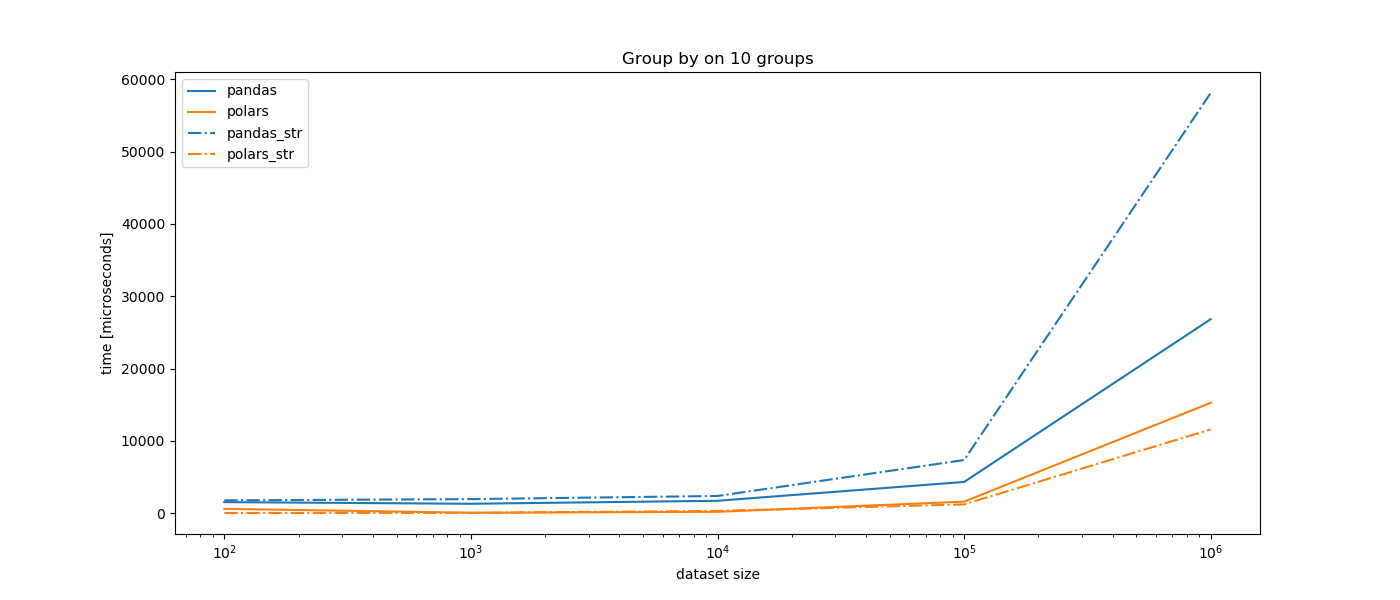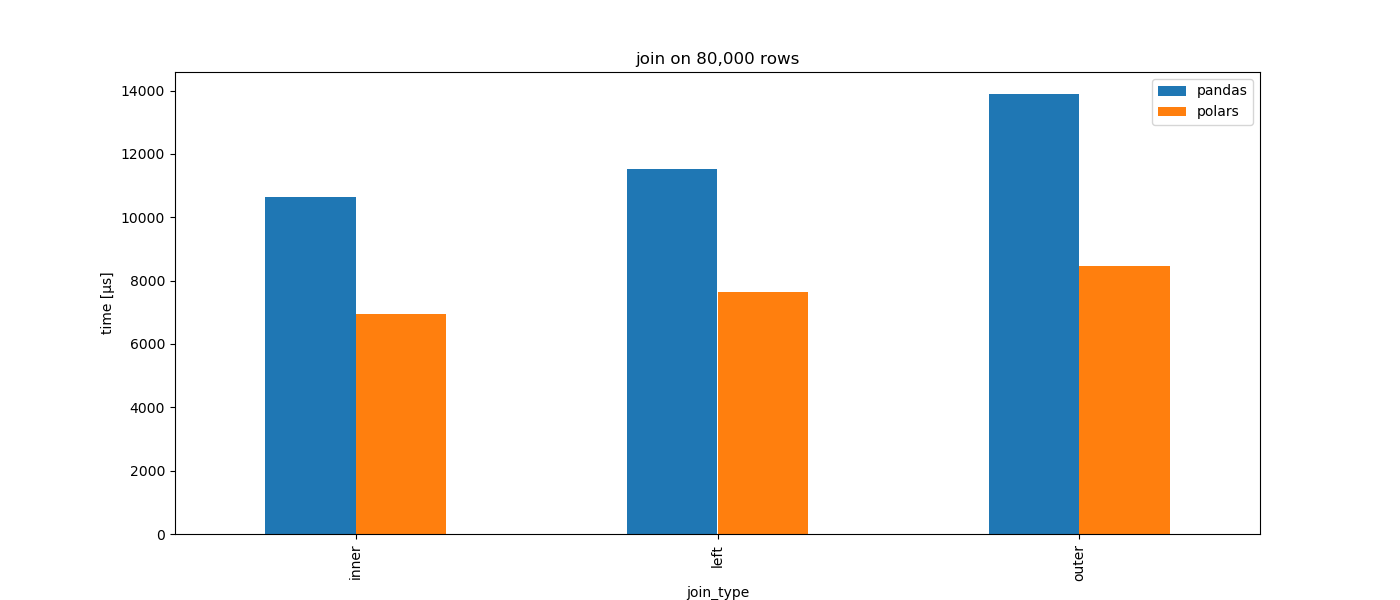Polars is a DataFrames library implemented in Rust, using Apache Arrow as backend. Its focus is being a fast in memory DataFrame library.
Polars is in rapid development, but it already supports most features needed for a useful DataFrame library. Do you miss something, please make an issue and/or sent a PR.
Take a look at the 10 minutes to Polars notebook to get you started.
Want to run the notebook yourself? Clone the repo and run $ cargo c && docker-compose up. This will spin up a jupyter
notebook on http://localhost:8891. The notebooks are in the /examples directory.
Oh yeah.. and get a cup of coffee because compilation will take while during the first run.
A subset of the Polars functionality is also exposed through Python bindings. You can install them for linux with:
$ pip install py-polars
Next you can check the 10 minutes to py-polars notebook or take a look at the reference.
Want to know what features Polars support? Check the current master docs.
Most features are described on the DataFrame,
Series, and ChunkedArray
structs in that order. For ChunkedArray a lot of functionality is also defined by Traits in the
ops module.
Polars is written to be performant. Below are some comparisons with the (also very fast) Pandas DataFrame library.
use polars::prelude::*;
use std::fs::File;
fn example() -> Result<DataFrame> {
let file = File::open("iris.csv")
.expect("could not open file");
CsvReader::new(file)
.infer_schema(None)
.has_header(true)
.finish()
} use polars::prelude::*;
fn join() -> Result<DataFrame> {
// Create first df.
let temp = df!("days" => &[0, 1, 2, 3, 4],
"temp" => &[22.1, 19.9, 7., 2., 3.])?;
// Create second df.
let rain = df!("days" => &[1, 2],
"rain" => &[0.1, 0.2])?;
// Left join on days column.
temp.left_join(&rain, "days", "days")
}
println!("{:?}", join().unwrap()); +------+------+------+
| days | temp | rain |
| --- | --- | --- |
| i32 | f64 | f64 |
+======+======+======+
| 0 | 22.1 | null |
+------+------+------+
| 1 | 19.9 | 0.1 |
+------+------+------+
| 2 | 7 | 0.2 |
+------+------+------+
| 3 | 2 | null |
+------+------+------+
| 4 | 3 | null |
+------+------+------+
use polars::prelude::*;
fn groupby_sum(df: &DataFrame) -> Result<DataFrame> {
df.groupby(&["a", "b"])?
.select("agg_column_name")
.sum()
} use polars::prelude::*;
let s = Series::new("foo", [1, 2, 3]);
let s_squared = &s * &s; use polars::prelude::*;
let s: Series = [1, 2, 3].iter().collect();
let s_squared: Series = s.i32()
.expect("datatype mismatch")
.into_iter()
.map(|optional_v| {
match optional_v {
Some(v) => Some(v * v),
None => None, // null value
}
}).collect(); use polars::prelude::*;
let s: Series = Series::new("values", [Some(1.0), None, Some(3.0)]);
// null values are ignored automatically
let squared = s.f64()
.unwrap()
.apply(|value| value.powf(2.0))
.into_series();
assert_eq!(Vec::from(squared.f64().unwrap()), &[Some(1.0), None, Some(9.0)]); use polars::prelude::*;
use itertools::Itertools;
let s = Series::new("dollars", &[1, 2, 3]);
let mask = s.eq(1);
assert_eq!(Vec::from(mask), &[Some(true), Some(false), Some(false)]); let dates = &[
"2020-08-21",
"2020-08-21",
"2020-08-22",
"2020-08-23",
"2020-08-22",
];
// date format
let fmt = "%Y-%m-%d";
// create date series
let s0 = Date32Chunked::parse_from_str_slice("date", dates, fmt)
.into_series();Additional cargo features:
pretty(default)- pretty printing of DataFrames
temporal (default)- Conversions between Chrono and Polars for temporal data
simd- SIMD operations
paquet- Read Apache Parquet format
random- Generate array's with randomly sampled values
ndarray- Convert from
DataFrametondarray
- Convert from

